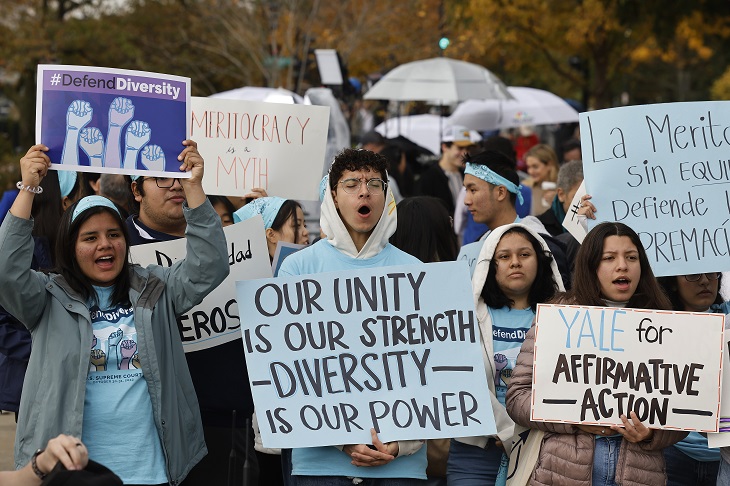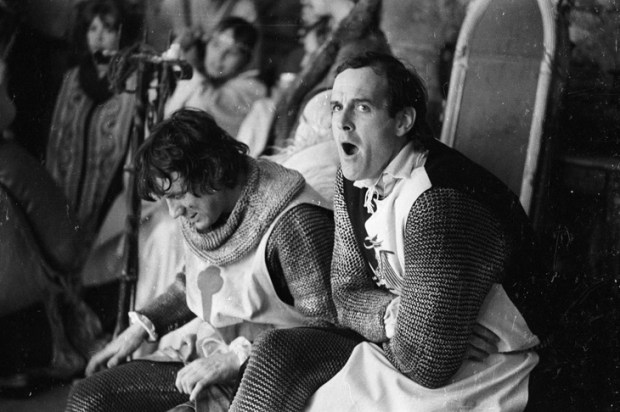Esteemed American psychologist Jonathon Haidt recently made headlines having resigned from his major professional association. He did so out of frustration that ‘everybody presenting research at the group’s conferences [must] explain how their submission advances “equity, inclusion, and anti-racism goals”.’
‘The Society for Personality and Social Psychology (SPSP)—recently asked me to violate my quasi-fiduciary duty to the truth. I was going to attend the annual conference in Atlanta next February to present some research with colleagues on a new and improved version of the Moral Foundations Questionnaire. I was surprised to learn about a new rule: In order to present research at the conference, all social psychologists are now required to submit a statement explaining “whether and how this submission advances the equity, inclusion, and anti-racism goals of SPSP”.’
Like Haidt, I too have had a gutful of hearing ‘diversity and inclusion’ (D&I) being propagated the left, right, and centre. At schools. At universities. In the workplace, where the average base salary for D&I managers is $98,000. In politics. In the media. In sports. It is inescapable.
These values may seem fair on the surface, but in reality, D&I initiatives are backwards. Here are four reasons why:
1. They are a waste of time, money, and resources.
Australia already is a diverse and inclusive society. In such an immensely successful multicultural society like ours, the constant push for D&I is pointless. Australia is a great melting pot of different ethnic backgrounds; we are a migrant nation. This is not to deny any historical wrongs, with respect to the treatment of Indigenous Australians and certain immigrant communities. As no person is perfect, so it is with nations. Nevertheless, it is imperative that we take the good with the bad.
It follows that the talent pool in Australia is inherently diverse, hence there is no need to deliberately mandate diversity quotas or schemes. It is in any organisations best interest to hire on a meritocratic basis for the best outcomes (just as ‘the telos of a university is truth’, not D&I), and we are blessed to have the luxury of choosing from a diverse talent pool, without having to obsess over D&I; for it will occur organically.
With respect to the wastage of both money and resources, examples are aplenty, with over 80 per cent of Australian businesses emphasising D&I. Why does BOM require a D&I manager? Perhaps if they allocated more resources toward their core responsibility, we might receive a more accurate weather forecast.
2. They are racist.
The ideology behind D&I initiatives stems from identity politics and Critical Race Theory, which is inherently bigoted and racist as it categorises individuals according to their immutable characteristics, like their skin color, sexual orientation, religion, etc.
‘D&I’ is a neat way to cover up the progressive ideological identity-politics-laden agenda, which is in fact antithetical to a diverse and tolerant society. Left-wing ideologues are solely preoccupied with pushing their agenda, not treating all unique individuals with dignity and respect. The Academic Freedom Alliance warned that ‘academics seeking employment or promotion will almost inescapably feel pressured to say things that accommodate the perceived ideological preferences of an institution’. This is devastating for the pursuit of truth and equally the notion of justice.
As George Orwell warned in Animal Farm, ‘All animals are equal, [but some] are more equal than others.’ In other words, many progressive ideologues (most often the very one’s pushing for D&I) can be as vile, bigoted, hateful, and malicious to those that are not in line with the cause. In an insightful piece entitled Misunderstanding Equality, Bo Winegard illustrates the proclivity for modern leftist editors to ‘reject articles [contradictory toward] progressive political views about race, sex, and gender-identity’. It would now seem that those harbouring the politically correct opinions are those animals that ‘are more equal than others’. As it has been quipped, Orwell’s work now seems to be utilised as a manual for ideologues, rather than a warning for us all on the dangers of communism.
3. They create a problem where none existed before – they make normal people angry.
D&I initiatives inevitably result in adverse reactions from people like Haidt who just want to get on with their lives and not get caught up in this tripe. While many proponents are well-intentioned (and not knowingly driven by ideology), I am convinced that many quiet Australians have had a gutful. There is something excruciatingly patronising about being told how to treat other people with respect. People want to get on with their lives and not be treated like kindergarteners. The rising resentment is palpable. The danger of this trend persisting is the risk that the pendulum swings too far back. The last thing anyone should want is for Australia to become as deeply polarised as America. Nota bene: the road to hell is paved with good intentions.
4. Their cheerleaders are hypocrites.
I had a good chuckle when I read this ABC article claiming ‘ageism’ against Fran Kelly. I’d be placed in a financially enviable position had I received $1 during my BA degree for every time I heard a lecturer or tutor describe the historical figures we were studying as ‘old, pale, male, and stale’. I doubt though that the ABC (one of the big media proponents of D&I) would see fault with this particular term. More to the point, the ABC completely lacks diversity of opinion (especially politically), as Gerard Henderson consistently observes, it is ‘a conservative-free zone’. Diversity of opinion is vital in a free society, and especially on our public broadcaster which is funded by all Australians, and therefore should be representative of all views.
Instead of wasting our time with D&I Initiatives, couldn’t we all just take it as a rule that we need to be kind to each other? It is incumbent upon us all to treat one another with respect, irrespective of our differences.
From what I understand, there is a famous book that mentions this Bloke who was keen to spread the message ‘love one another, as I have loved you’. Seems reasonable!
Good on Haidt for taking a stand against the uniformity and exclusivity (not real D&I) of the progressive-left. He sets a strong example for us Australians to follow.
Mark Burgess is a contributor for Young Voices Australia and looks forward to the day when he will be referred to as ‘old, male, pale and stale.’
Got something to add? Join the discussion and comment below.
Get 10 issues for just $10
Subscribe to The Spectator Australia today for the next 10 magazine issues, plus full online access, for just $10.


























Comments
Don't miss out
Join the conversation with other Spectator Australia readers. Subscribe to leave a comment.
SUBSCRIBEAlready a subscriber? Log in